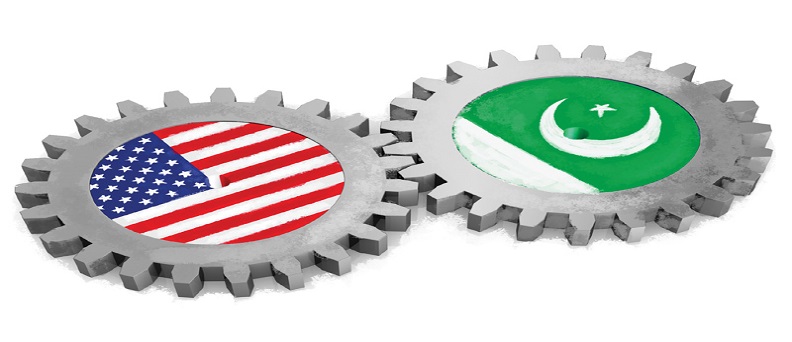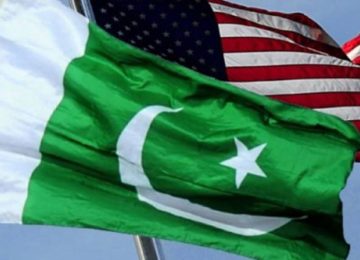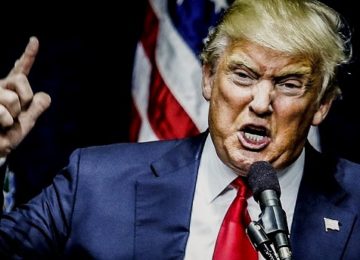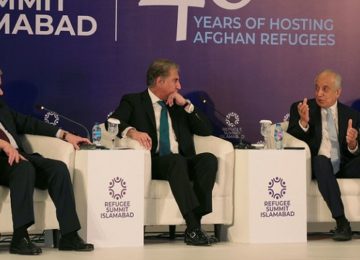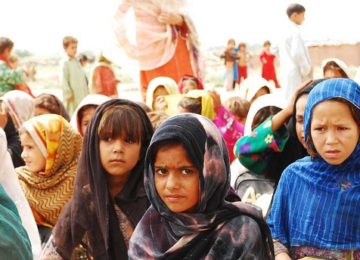The United States and Pakistan have begun the delicate act of reconciliation after the sudden spurt of acrimony ten days ago following President Donald Trump’s ‘shock-and-awe’ speech of August 21 regarding his proposed way forward in Afghanistan.
In that speech, Trump threatened Pakistan with dire consequences unless it acted “immediately” to terminate its dalliance with known terrorist groups. Islamabad responded by cancelling the planned visit of US Assistant Secretary of State for South Asian Affairs, Alice Wells.
The day after Trump’s veiled threat US Secretary of State Rex Tillerson set in motion a backtracking via a special media briefing in Washington that put the locus of the new US’ Afghan strategy back on a political and diplomatic track.
He took some flak for it in the American media, which saw him as undermining Trump’s strategy, but it is inconceivable that Tillerson would have gone out on a limb without a nod from the White House.
A more definitive picture of the strategy will emerge when US Defense Secretary James Mattis goes to Capitol Hill next week to brief congressmen and women who are returning to work after the summer recess.
Meanwhile, Mattis may have given some inkling of his line of thinking while chatting up the media in the Pentagon on Friday when he said, “We intend to work with Pakistan in order to take the terrorists down. I think that’s what a responsible nation does.”
However, some stunning news came from Islamabad on Thursday following a meeting between Pakistan National Security Advisor Nasser Janjua and US Ambassador to Pakistan David Hale where the latter literally took back much of what Trump said in his speech.
Hale even added some new dimensions to assuage Pakistani sensitivities, where he reportedly said:
- Trump neither put accent on a purely military solution in Afghanistan nor blamed Pakistan – or even remotely ruled out US engagement with Pakistan.
- The Trump administration accepts that Pakistan has an important role to play in a peaceful settlement in Afghanistan.
- Washington hopes to revive the Quadrilateral Coordination Group (Afghanistan, Pakistan, China and US) and the ‘Six-Plus-One Process’ (Afghanistan, Pakistan, India, Iran, Russia, China and the US) to kick-start a peace process.
- The Trump administration is aware of Pakistani sensitivities regarding India’s role in Afghanistan, but Washington visualizes a role for India that is confined only to the economic sphere.
- The US is ready to play its role in reducing India-Pakistan tensions.
From the Pakistani handout of the meeting in Islamabad, Janjua played tough and reportedly put Hale on the defensive.
History is repeating itself, it seems. Traditionally, Pakistan’s negotiating strategy vis-à-vis the US has been to first open heavy artillery, with a sense of deep hurt and anger, before sitting down to coolly work out deals and trade-offs behind the scenes with a softened-up American interlocutor.
In the final analysis, Hale’s softer line was probably influenced by the resolution passed by the Pakistan National Assembly and Senate last week, which amongst other things demanded the suspension of supply routes for US forces via Pakistan in Afghanistan.
The Pentagon heavily depends on Pakistani transit routes, which are logistically and financially the most optimal. Any American ‘surge’ in Afghanistan likely means even greater dependence on Pakistan’s cooperation to keep the routes open.
It is debatable how seriously the Pakistani military’s leadership took Trump’s threats in the first place. They would know that Washington is hardly in a position to read the riot act to Pakistan, given the worsening security situation in Afghanistan, the ineptitude of the US’ Afghan ally and a highly complicated regional milieu where the US faces near-total isolation.
In all likelihood, Pakistan sensed that Trump was largely grandstanding before multiple US audiences.
Interestingly, Janjua put forth a new suggestion to the Trump administration: the establishment of a parallel, fully empowered political authority by the US in Afghanistan that would “work in parallel with the military commanders to help find a peaceful, political solution to the conflict and bring the perpetual conflict in Afghanistan to a quick closure that was in the best interest of all parties.”
From a Pakistani perspective, this is smart thinking. Pakistan has long relied on a single, unquestionable, unaccountable authority to steer its overt and covent Afghanistan policies: the military. Prima facie, Janjua implied that Pakistan is open to a “quick closure” to the Afghan conflict and is raring to go at a bilateral level.
It will be a tantalizing proposition to the Trump administration to open a new page of constructive engagement with Islamabad.
On the other hand, the creation of multiple authorities in Kabul can lead to some ticklish issues. It is well-known that the high-profile US special representative to Afghanistan, the late Richard Holbrooke, and the flamboyant US commander General David Petraeus leading the previous troop ‘surge’ in Afghanistan couldn’t get along.
Besides, a US Viceroy in Afghanistan may overshadow the current Kabul set-up and generate resentment in the Afghan mind. That is what happened between Holbrooke and the then Afghan President Hamid Karzai.
Still, Trump may find merit in the Pakistani suggestion to seek a quick closure to the grinding conflict, despite his tough talk on Pakistani support for terrorism for American audience consumption.
The article originally appeared on www.atimes.com on September 03, 2017. Original link.



